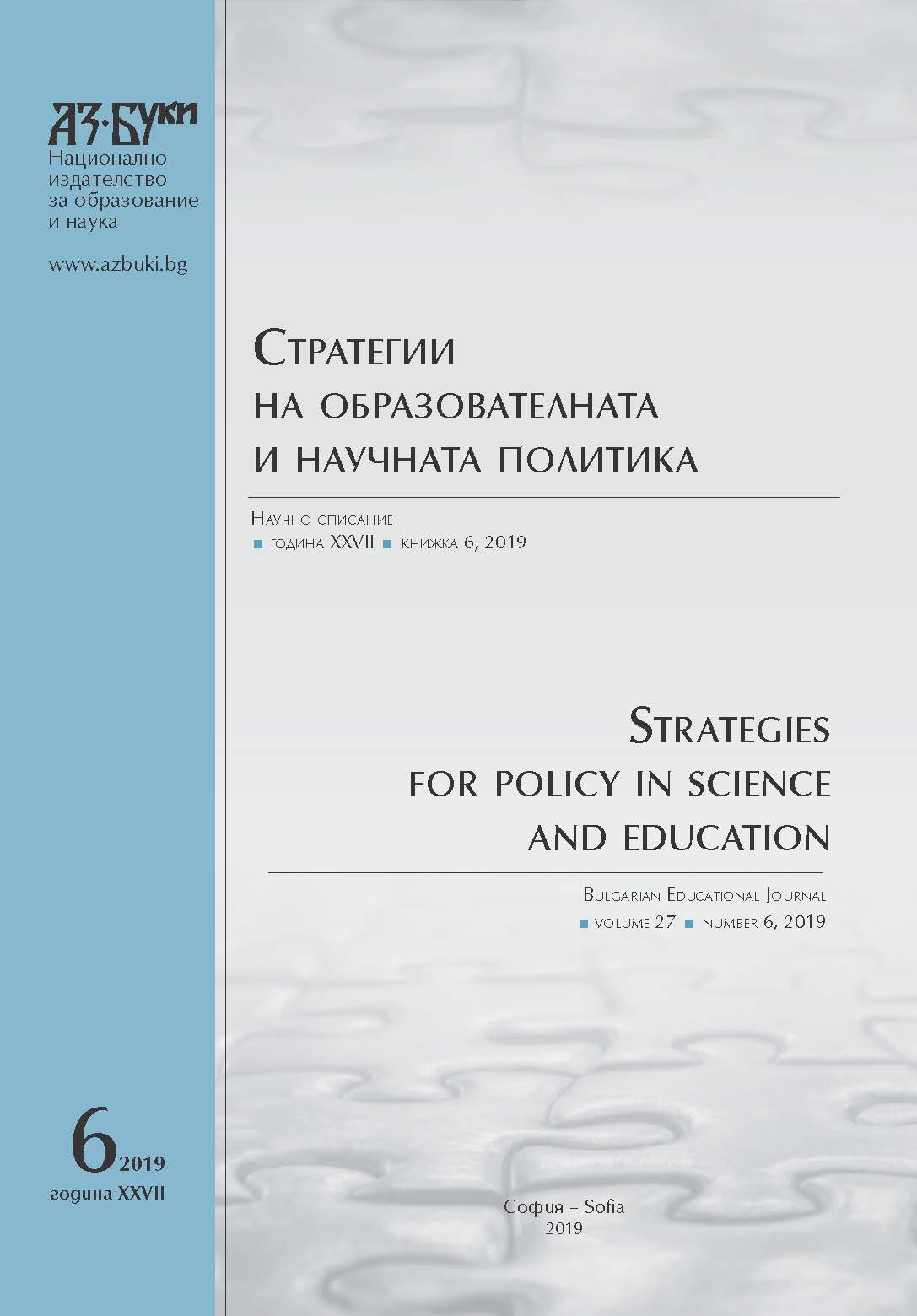
We kindly inform you that, as long as the subject affiliation of our 300.000+ articles is in progress, you might get unsufficient or no results on your third level or second level search. In this case, please broaden your search criteria.

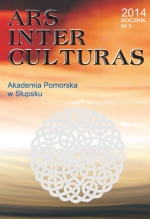
Background: The paper explores the potency of music activities and background musicto support academic performance and behaviour of Slovak middle school pupils. It reviewsdevelopmental, social and emotional changes that children face during the period of preadolescence. School and education is connected with the formation of personality, thus schoolstaff and parents need to pay attention to social and emotional well-being of pupils. The objective of the study is to investigate academic performance and behaviour of pupils (aged 10-11) before and after music intervention. Methods: The target research group consists of forty-four Slovak fifth graders from big urban, municipal middle school. Data were collected by evaluation of rating scale conducting teacher´s professional judgement about pupils they taught the four explored school subjects. Results: The study summarises the results of rating scale of teacher’s opinions of pupils’academic performance and behaviour in the control and experimental groups (with and without music intervention). The results show the potency of music to support academic performance and improve behaviour of pupils.
More...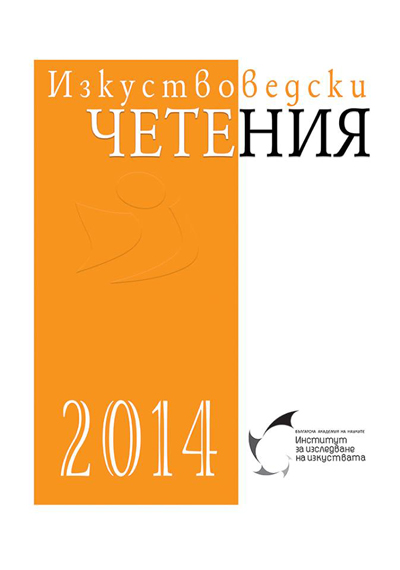
The image of circus performers has been most interesting and dramatic until the 1950s, when they have been marginalized by the post-war culture, becoming an object of socially committed photography. In 1958, a rookie member of the Magnum photo agency, Bruce Davidson took pictures of the Clyde Beatty Circus in his series The Dwarf, which became emblematic of the subject. Davidson used the devices of photography to show the effect of the costumes, masks and gestures of his protagonist, the dwarf clown, to make him an epitome of an outsider. The psychological and social streaks intertwine, offering an opportunity for a number of various interpretations. Treated in terms of Pierre Bourdieu’s field, habitus and symbolic capital, in terms of their significance these take the place of the sets and numbers, being the personal symbolic capital of circus performers. Through it, in the field of continuous travelling, communal life ad anonymity, habitus is represented: estrangement from the value of material benefits, concealed or exaggerated emotions in communicating, the choreographed use of facial expressions, single-plane communication with the audiences, lack of comprehension of the accomplishments of an artiste.
More...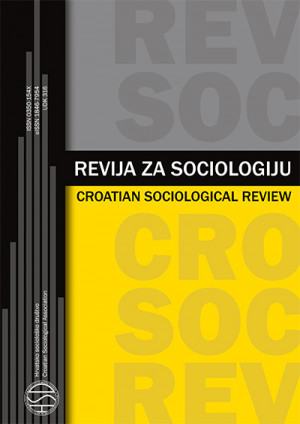
A number of recent international studies have reported the growing electoral success of populist parties among younger age groups. In this study, authors analysed the “breeding ground” for populism among the youth in Zagreb using the results of the Memory, Youth, Political Legacy and Civic Engagement (MYPLACE) project in Croatia. A mixed methods approach was employed with thematic analysis of 61 semi-structured interviews and regression analysis on a survey sample data of 1,216 young people aged 16–25. Qualitative analysis indicated analogies to Cas Mudde’s three core concepts of populism (the “good people”, the “bad elite” and the “general will”) among interviewees’ opinions.In addition, common ideological features of populism (nationalism and radical egalitarianism) were to a degree present among the interviewees’ attitudes. In the quantitative part of this paper, the authors narrowed the analysis of populism to the radical right variant of populism, and – given the lack of prominent populist actors in Croatia – to support of ideas rather than political parties. The attitude towards a political system with a strong leader not constrained by parliament was chosen as the outcome since it holds significant populist potential in contemporary democracies. Analyses showed the connection of the anti-elite, anti-systemic attitudes – as well as authoritarianism and a few right-wing political attitudes –with the strong leader preference. Both qualitative and quantitative results of this study indicated that the “breeding ground” for populism exists among the youth in Zagreb. Additional research is required to further examine that complex and previously unexplored topic.
More...
The objective of the paper is to investigate the relations of the customers' participation in product boycott and values preferred by them. The conceptual framework is based on the Schwartz’s theory of human values. Data from the European Social Survey are used to test research hypotheses. Findings clearly show that consumers who take part in product boycotts place greater importance on independence as well as they attach less importance to conservatism (tradition, conformity, security) and egoistic values (power, achievement) then other consumers.
More...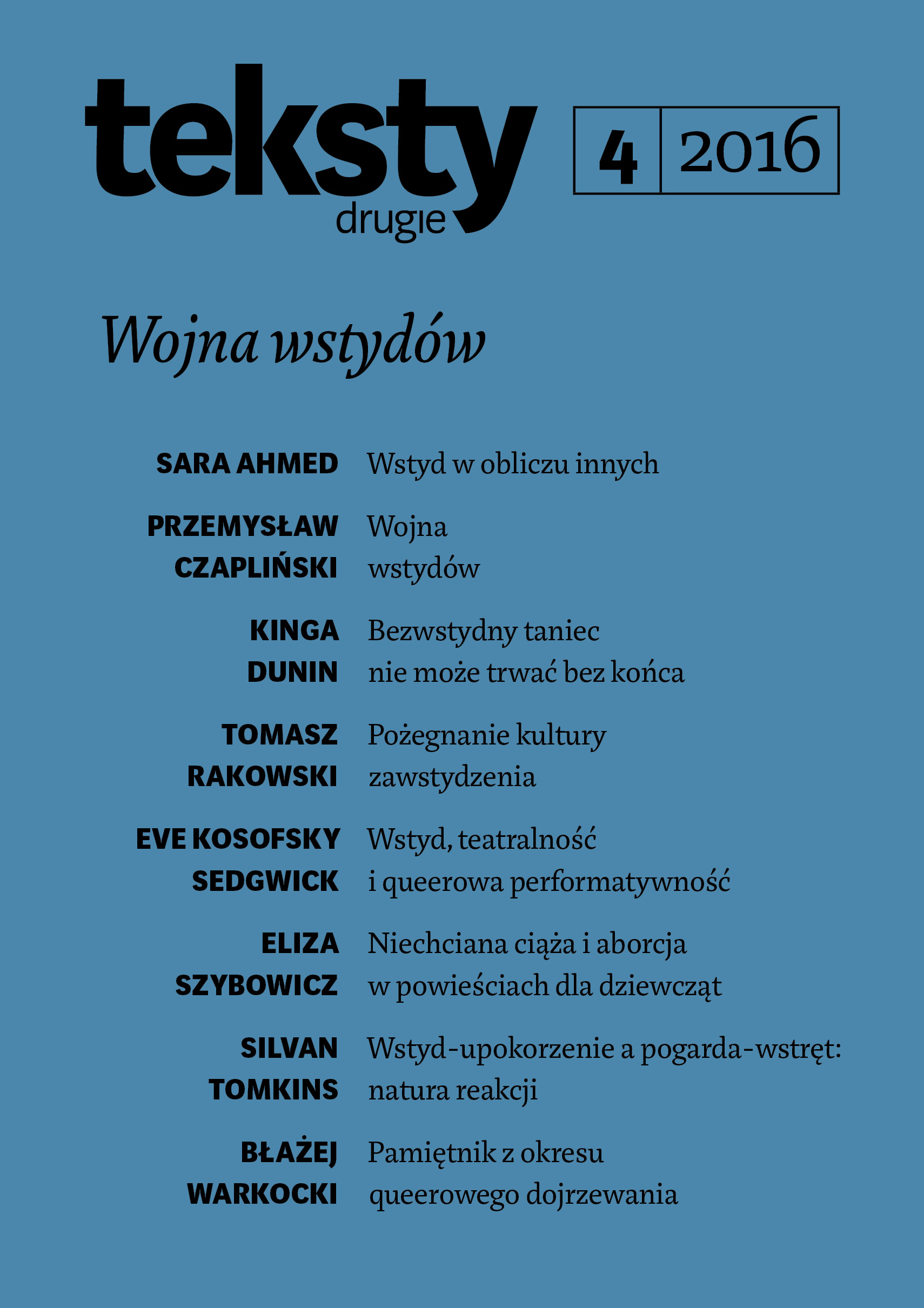
This article discusses the culture of shaming – a perspective that appears where modernizing discourses on Polish society are confronted with the cultural experiences of villagers. Rakowski explores several possible ways of going beyond this perspective, referring, in turn, to the world of rural social subjectivity as it emerges from artistic and ethnographic projects, the conditions of belonging and the possibilities of performing an ‘inward turn’ in situations of intersocial encounter, and the potential to construct an alternative understanding of society – a proto-sociology. Thus artistic projects are linked with what is ethnographic and current, and above all with the possibility of an alternative social history shaped by rural communities.
More...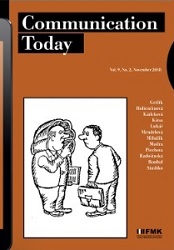
Consumer culture in the era of late modernity undergoes dynamic changes of global significance. One of the key attributes of these changes constitutes an increasing supply of opportunities and quantitative volumes of different product options. However, this trait of so-called “consumer society” is largely ambivalent. On the one hand, expansion of opportunities constitutes a desirable source of realisation and emancipation of personal freedoms and independence; on the other hand, demands on the ability to individually manage the consequences of one’s own decisions (and to take responsibility for these decisions) increase. We can see this ambivalence well with respect to an example of two different adaptive strategies of consumer choice – maximizers and satisficers. Maximizers are likely to achieve better objective outcomes of their selections than satisficers, but their subjective perception of these results is, according to empirical evidence, more affected by negative emotions. These and other findings should be used more extensively in the marketing practice associated with business strategies.
More...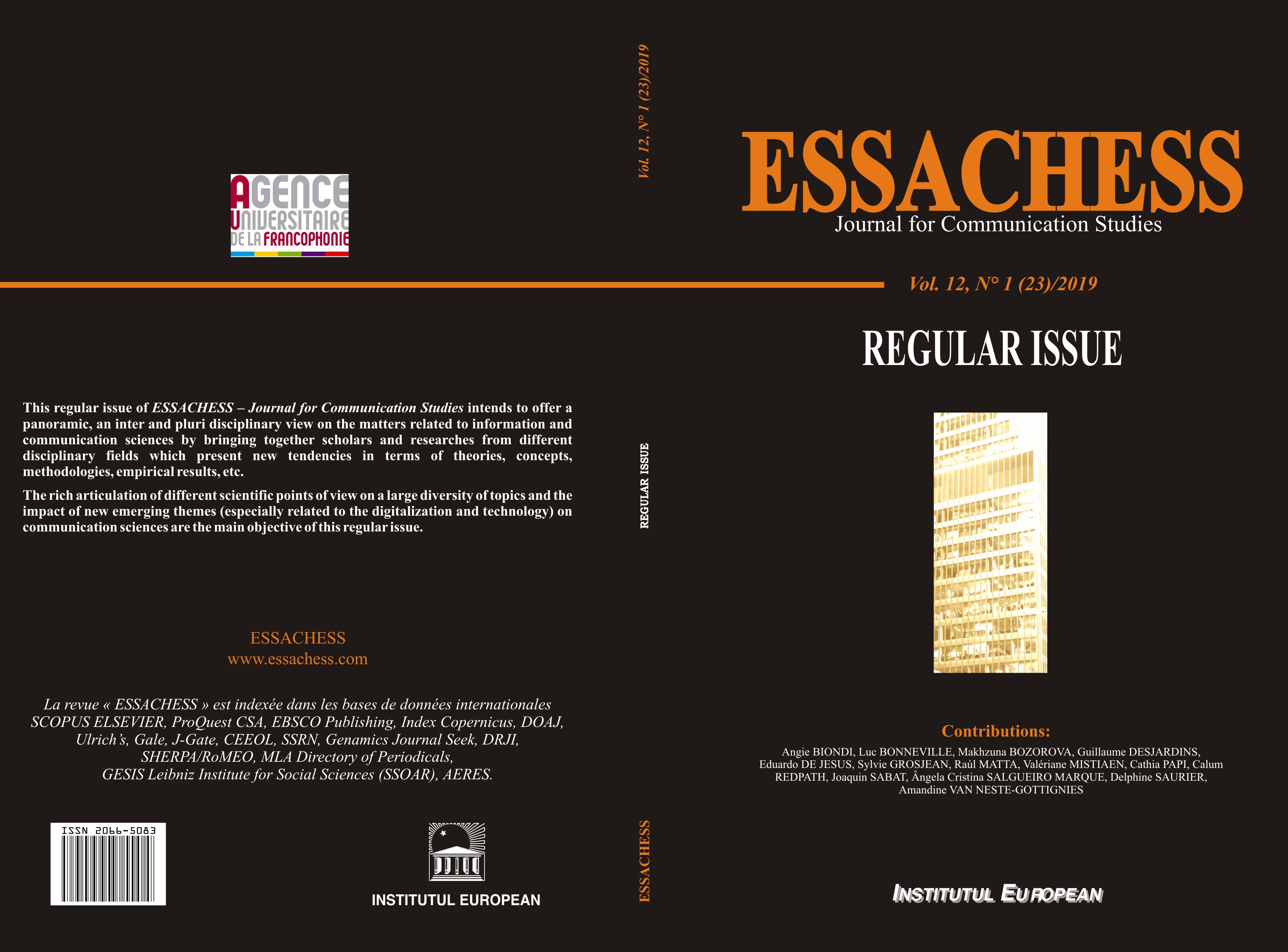
This article aims to analyze gastrodiplomacy, which has become a trendin international relations, as a set of institutional practices that pushes the boundariesof the political uses of food cultures. I will show that the rise of the concept in recentyears lies to the fact that it extends to the national and international levels, itsintrusive and performative nature (that is, generative of participation and action) andstrong ideological charge. More specifically, I will address the way in whichgastrodiplomacy, as instrumentalized by public and private agencies, participates inthe making of imaginaries aimed at facilitating the adhesion of citizens to theinterests of political and economic elites.
More...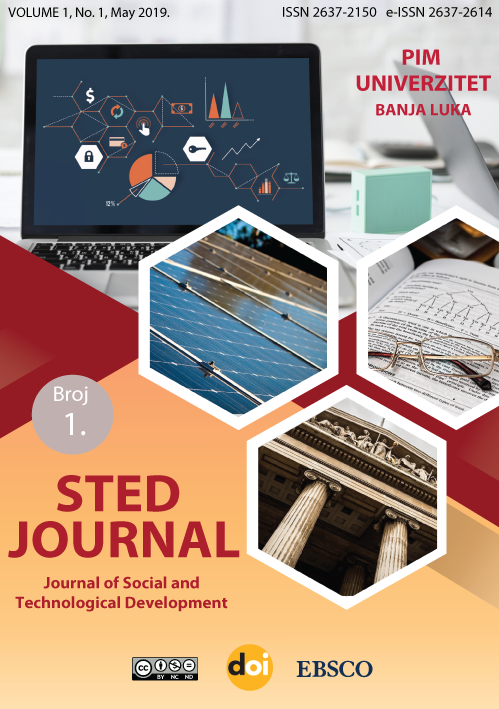
The occurrence of international child abductions is not of a recent age, although the term “abduction” is of a relatively recent date. By studying ancient legal sources (Roman law, rights in ancient Greece, rights in Mesopotamia etc.) legal fragments are found that refer to parents who “take their child”, parents who “keep their child”, parents to whom the child “belongs” or similar. International abduction, or illegal removal of a child from one country to another, is a problem which entails a series of open questions closely related to the child’s personality, while legally speaking, such a phenomenon leads to the conflict of laws and jurisdictions between different states, or the state of the child’s usual residence and state in which the child is taken unlawfully.States tend to come up with the best solutions regulating the conflict of laws and jurisdictions between states, trough the prism of the international law, including the achievements of the Hague Convention on the civil rights aspects of international child abductions.
More...
In this paper we will talk about the concept and types of violence, its manifestation forms, and the ways of expressing violence among young people in cities, in this case in Banja Luka.There are various forms of violence that arise for various reasons and due to various causes. Тhe characteristic of every form of violence is the possibility and danger of its further escalation and expansion.We will try to answer the question of what is violence, how and why it manifests itself, and what are the types and forms of violence that young people face?
More...
Issue of terrorism is very actual in these days, as a method of provoking conflicts and achieving certain political and other goals. However, such forms of conflict are known for ancient time, but they have taken on a number of new features, especially in the institutional sense and in recent times. The aim of this paper is to highlight this problem from several aspects (historical, political, security, legal), to point out its causes and consequences. In this respect, we will present different definitions of this problem by national and international experts in this field, with particular attention to the Republic of Srpska and BiH. The consequences of global terrorism are almost scary, starting from the loss of human life, the heavy and life-threatening injuries of human beings - mainly civilians, huge material damage, and to the psychological consequences of fear, panic and uncertainty in people.
More...
In every sphere of life is present violence. If viewed as a compound we can say that violence is any action and activity that is carried out by force. Violence is a human phenomen because it involves not only the presence of force, but also its use by man.In this work will be analyzed bullying as socially negative phenomenon, its forms and types, as well as experience of high school students in the Republic of Srpska when it comes to direct and indirect exposure to violence at school, as well as the importance of mediation in preventing the arrival of more serious forms of bullying. Also, will point to the advantages of mediation, as well as the kind of mediation that can be used with students, as well as the mediation may be applied by the students themselves, and peer mediation.
More...
More or less, mobbing exists in every organisation and institution. This is the most frequent and most visible indicator of problems in an organisation and society as well. Absenteeism and its causesis regarded as one of the most complex management problems in all organisations. In occupational health and occupational psychology, absenteeism is mostly indicator of certain social, health or personal disorders (e.g. social dysfunctionality, troubled interpersonal relationships, stress, work conditions, personal lack of work ethic, strategies to avoid work, depression, alcoholism, other forms of addiction etc.), and most often the reason is the appearance of mobbing in the work organization. Due to the consequent linkage, mobbing is one of the most common causes of avoidance at work. Employees who are exposed to mobbing are often absent from work, which is quite logical because they avoid situations where they feel vulnerable. Control of absence from work can be performed through recording the time with information systems or, more precisely, functionality of human resources management software solutions i.e. modules to record presence that record the time of arrival, departure, explanation of reasons for coming late, allowing the employees to record the time spent on different jobs, linking with payroll, etc. This paper presents the etalon model and specifies the structure of a part of human resources management information model, which is built based on results of theoretical studies and empirical accounts.
More...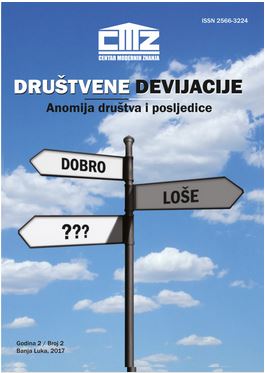
Domestic violence is a problem that has taken an increasing scientific and general public attention over the past few decades. When it comes to Serbia, it seems that despite the greater attention and the stricter regulatory framework, acomplished results are not satisfactory. Therefore, this paper is devoted to the general considerations on family violence, as well as to the analysis of legislative solutions concerning family and domestic violence in the Republic of Serbia, with reference to the statistical and other data about the extent and forms of this type of criminal behavior. The aim of this paper is to highlight the key issues and to suggest some ways how to overcome the problems.
More...
The fact that the problem of bullying among children is a phenomenon that must be seriously addressed, is proved by the results of numerous researches that emphasize that the children today are continuously and systematically attacked and disturbed by other children. Today, bullying, either emotional, physical or sexual, does not know any boundaries; nation, origin, language, religion nor age and sexual orientation. That way bullying is not observed as a binary relationship victim – abuser but as a group phenomenon in which children play different roles. Bosnia and Herzegovina's society, unlike developed societies, is facing many problems that disable the insight into problems and the forms of bullying among children and currently there are no relevant indicators of violence among children nor laws connected to the prevention of this kind of violence which represents a difficulty in the creation of multidisciplinary approach to phenomenon of bullying among children. The schools, being the institutions in which children spend most of their time, represent a potential platform for scene of violence to take place. This work, using a sample of children in primary schools (N=212), tries to examine the occurance of the violent behavior phenomenon, the most common forms of violence to which children are exposed, identification of the abusers and their victims. The work also intents to point out that bullying is not only a problem in schools, but it is also becoming a social problem that needs to be sistematically resolved. Considering the fact that bullying as a problem in primary schools in Bosnia and Herzegovina is very little researched, the results of this research may be able to provide a basis for a comparison of the outspread of bullying in our country and the world, and offer a framework for the making of prevention and intervention programs at the level of primary schools.
More...
The family gives the "first seal" to socialization, upbringing, education and the regulation of general human and humanistic values and therefore has a first-class role in the formation and development of a young man.Compliant functional family relationships based on love, mutual trust and respect can replace many other shortcomings, including those of material nature. However, on the other hand, what practice continually confirms is that even the greatest material wealth can not compensate the most brilliant and the greatest family treasures such as: functional relationships in the family expressed through love, trust, appreciation and understanding, which gives the family the role of a cradle of personality.In addition to the positive, the family can certainly have a negative impact on the process of personality formation. These are dysfunctional families where parents are unable to properly raise and socialize children, or parents who represent a negative model for negative identification.The reasons for family dysfunction may be different, from incomplete family structure, frequent family conflicts, sometimes burdened with parent fights, alcoholism, and from previously present criminal behavior.Often the family is not a harbour where the spirit and body rest, but a source of turmoil in which conflicts and emotional tensions flourish. "Families with these negative properties in literature are known under different terms: " broken home "," divided family "," deficient family "," Family with defective family relationships "(Wootton, 1959).This expert work aims to examine the possible causes of family dysfunction and especially the negative effects on the proper upbringing and growth of children, but also the appearance of deviant behavior to the development of all other asocial and antisocial behavior. The results of the study show that the dysfunction of the family has a direct negative impact on the proper upbringing, growing up and socialization of children, which results in deviant behavior, lack of emotions and moral behavior, which ultimately ends with the development of all aspects of the asocial and antisocial state of children.
More...
This article aims to analyze the relationships of psychology with science and technology, in order to identify what does the science establish and what does the technique establish in psychology. It highlights the role of the scientific method in psychology, with emphasis on the peculiarity of inductive and hypothetic-deductive methods in the psychological research. There are also examined the "subjective-objective" and "quantitative-qualitative" problems which acquire very special forms in the field of psychology. The connections of psychology with the technique, and especially with the “techniques” are extremely strong and extended. Basically, there is no investigation or practically applicative domain of psychology that does not refer to a specific technique of evaluation, psycho-diagnosis and / or intervention.
More...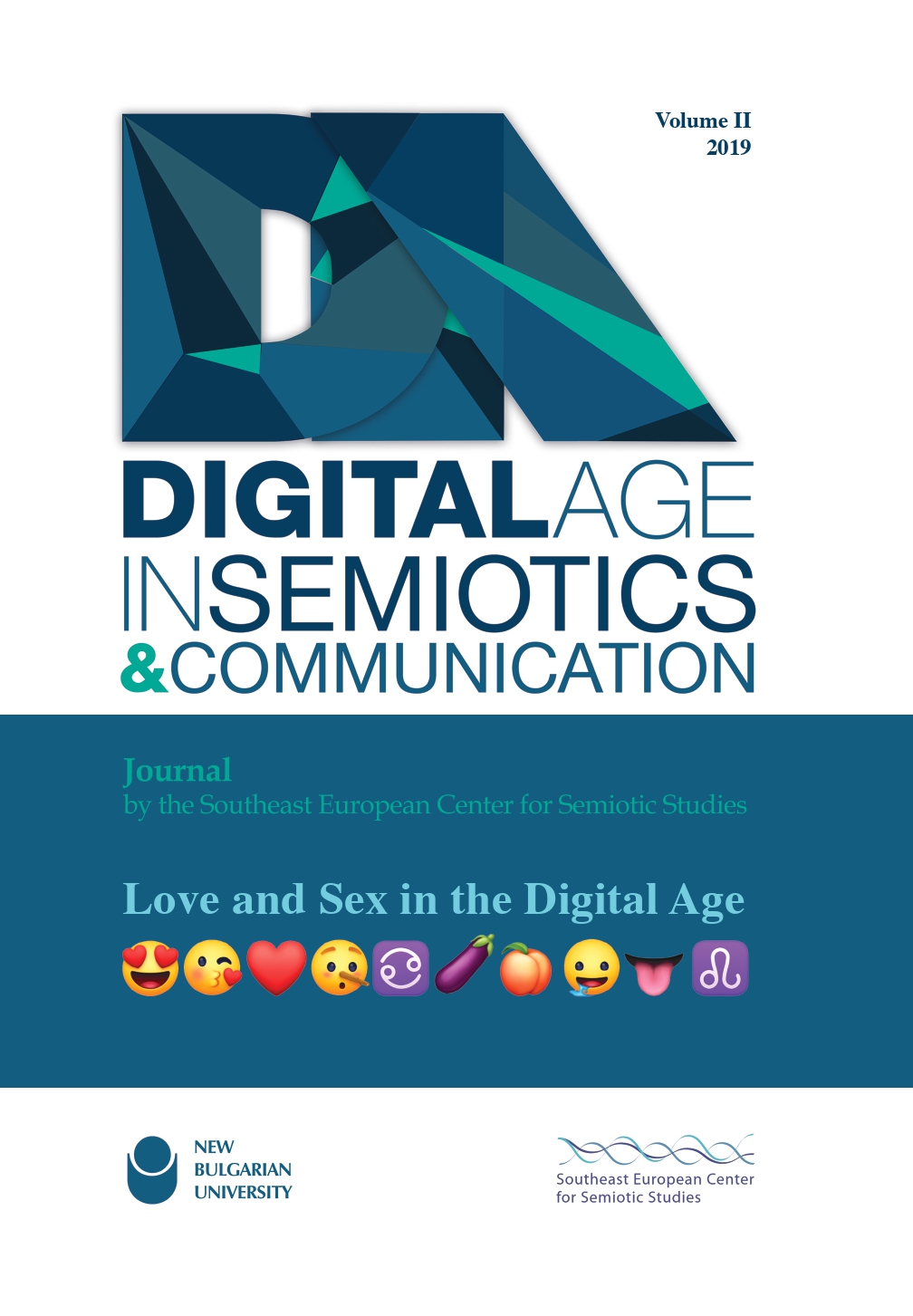
This second volume of our journal addresses an uneasy topic. It is uneasy exactly because it is too easy to speak about love and sex and yet say nothing. It is uneasy because there has not been tremendous academic interest in this topic within the field of humanities and social sciences, and contributions to the field have thus been sporadic and unsystematic. Moreover, it is uneasy because, compared to other aspects of our everyday life, love and sex concern our being in a way that it is difficult to observe in a neutral or scientific way.
More...
In this paper we will discuss the presence of love and sexuality in digital games (from ‘80s amateur porn games to the newest released VR ludo-erotic entertainment), both as representation and as experienced simulation. By way of a semiotic framework, we will analyze the following key features that produce the meaning of love and sexuality (L&S from now on) in these texts: the possibility of semantic manipulation, intersubjective enunciation, a cognitive sensibility created through a ratio, and the presence of an economy of meaning. Furthermore, we will look not only at what these games represent and allow players to do, but also at players’ strategies and actions that give love and sex meaning in these games. Finally, this work will allow us to highlight not only the ideological and socio-cultural relevance of love and sex in digital games, but also the limits of a classical semiotic approach to this kind of problem, and consequently to make a general theoretical reflection in the conclusion.
More...